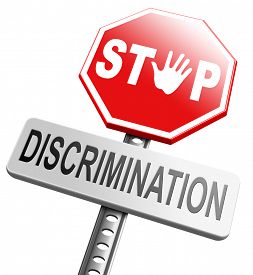“I have a dream that my four little children will one day live in a nation where they will not be judged by the color of their skin but by the content of their character.” (Martin Luther King)
Despite the great impact of the Tunisian uprising on the region and the relative success of the transitional process, crowned with two important elections judged “democratic and transparent” both in 2011 and 2014 and despite a new constitution that has been considered “unique” in the region, guaranteeing the basic freedoms and rights, Tunisia suffers from a lack of adequate legislations that protect minorities’ rights without distinction.
Here is an example: On January 23, 1846, that is 170 years ago, Ahmed Bey, the then governor of Tunisia, issued a decree outlawing slavery in the country and Tunisians, now, are so proud of this historical event that it had predated the United States slave abolition by nearly 20 years.
Unfortunately, “when pride comes, disgrace follows.” Abolishing slavery has never meant getting rid of racial discrimination towards black people and de facto racism is a reality in Tunisia today. The reason? The abolition of slavery has never been followed by a change in social relations, and education and it has not challenged the deep-seated cultural reflexes, often referred to as “foundational beliefs”.
“Racial discrimination based on the color of the skin is a shameful reality in Tunisia today, it can be either latent or apparent and it is fueled by a collective painful memory that considers black-skinned Tunisians as descendants of Sub-Saharan slaves,” says Business news (24-04-2015)
Take the village of Gosba, near the southern state of Mednine: there, inhabitants are divided into two communities: black and white. Like Alabama in the 1950’s, there are buses for white and black students. Worse still, blacks have no right to bury their dead in the white‘s cemetery!! Their own, a bit far away, is called “the cemetery of slaves” (see the documentary film, slaves of Gbonton)
Racial separation has been reinforced in Gosba since the year 2000 when two young people, a white girl and a black boy fell in love and decided to get married without their parents consent. Ever since, racial division has been deep-rooted and black people suffer not only more humiliation and contempt, but also marginalization and poverty; a group of people connected by color and blood relations, living all their rituals and social activities inside the closed group.
In a letter addressed to the Assembly of People’s Representatives, academic and researcher Maha Abdelhamid said that racism is not peculiar to Gosba. “It is seen in every town, village and district… It develops in the open air in the plain view of everybody.” (Lettre de Maha Abdelhamid aux deputes tunisiens, Février 2015)
Sometimes, racism may not be so overt and explicit. But that does not preclude its existence everywhere you go, from public transports to schools and universities, to the streets of Tunis.
Also, media does perpetrate racism. Because of her firm position in defending the freedom of the press, former President of the Journalists’ Union, Nejiba Hamrouni, was a victim of a smear campaign in 2013 , had her photo distorted on the front page of a newspaper and insulted with reference to her dark skin. That neither provoked reactions on the part of the State, nor was it denounced by large parts of civil society.
But not only black Tunisians are victims of racism, sub-Saharan students living in Tunisia face the same stigma. They were, for instance, a target of a spate of violence by football fans following the defeat of Tunisia in the African Cup of Nations (February 2015)
"Sub-Saharan students here are living in fear right now," Rania Ramdhane , a spokesperson for Mnmeti (My Dream), an anti-racism association , told Al Jazeera English (6 February 2015). A Malian student said that he was beaten and insulted by a group of Tunisia. "While beating me, they kept saying "go back to your country, the country of monkeys" And when I complained to the police, they refused to register my complaint." (Business news, 21 April 2015)
In a long powerful letter, Mariam Touré, a Malian student wrote about her deception when she arrived in Tunisia. «When I left my country, I was passionate about Tunisia, the Paris of Africa, the country of freedom and tolerance. She was disappointed when she "discovered another facet" where the country is no different from other racist countries. "Take my words as a cry of a lost sister who does not understand why the color of the skin would be the object of derision and mockery," (Equal Times8 March 2015)
Today, while we are commemorating the anti-racism Bey decree, we have also to remember that Tunisia has ratified the “International Convention on the Elimination of All Forms of Racial Discrimination that stipulates that countries guarantee the right of everyone, without distinction as to race, color or national origin." And the Convention urges for legislations to protect minorities, through criminalizing incitement of racial hatred and "ensuring judicial remedies for acts of racial discrimination."
While we are proud of the success of our transition, of our nascent democracy, it is worth recalling that some 10% of the population is often considered as second class citizens, simply because they happen to have a darker skin.
 Log in
Log in









